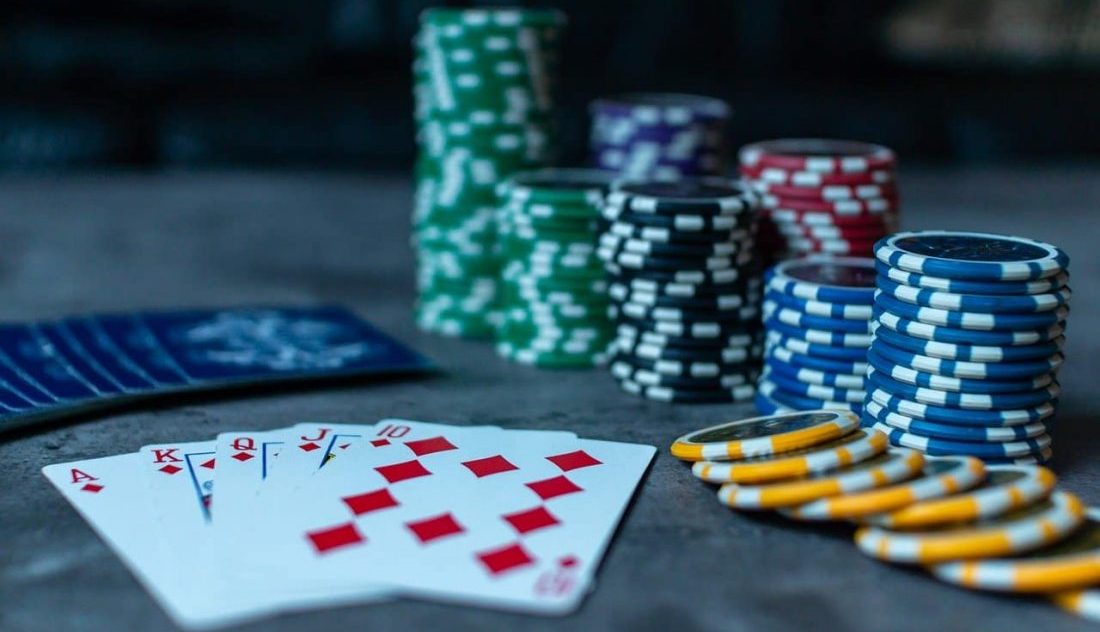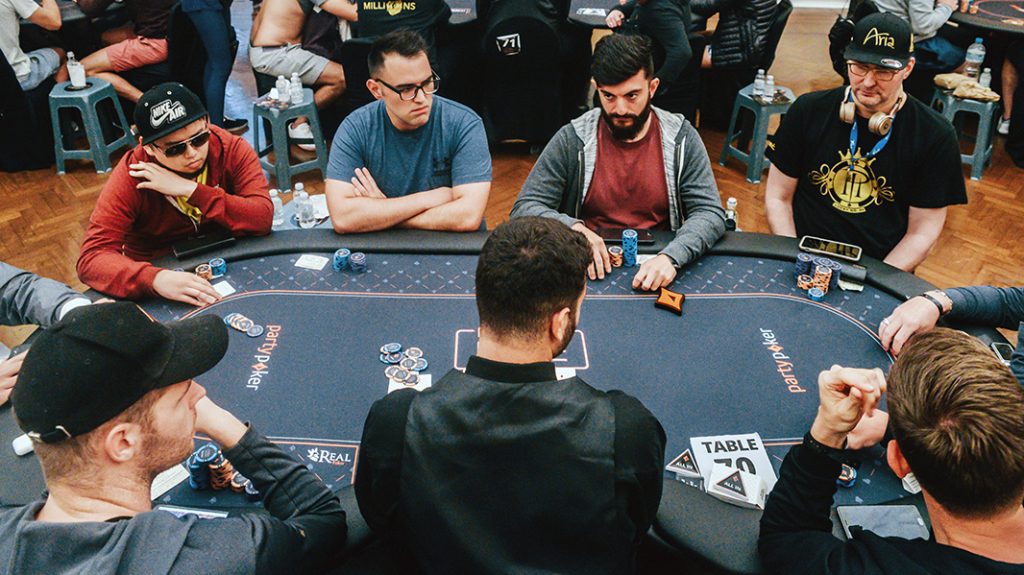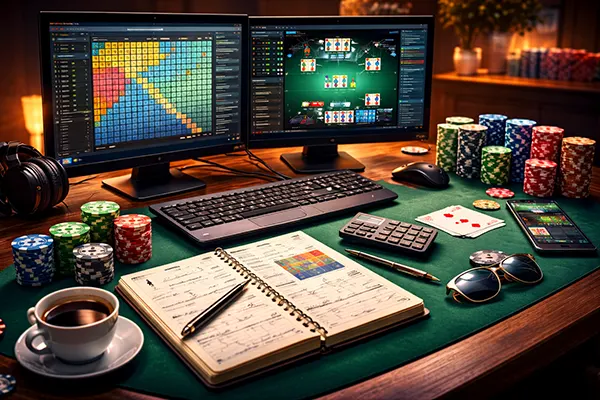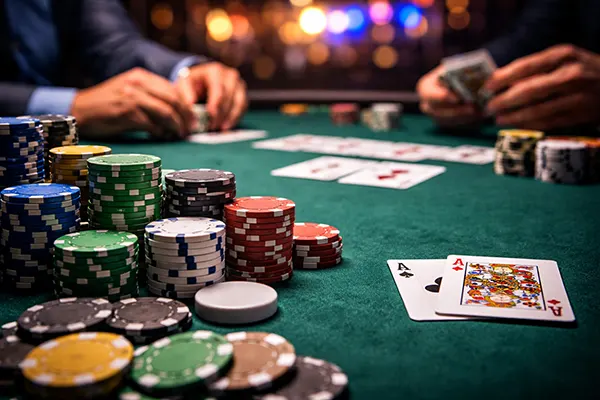
Poker tournament strategy and skill levels
The “patience factor” of any tournament is a measure of tournament “speed” that can be used to determine optimal tournament strategy and compare tournament values for a skilled player. The patience factor for any tournament determines the “Skill Level.” Here’s my ranking system:
| Patience Factor | Skill Level |
| 1.49 or less | 0 |
| 1.50 to 2.99 | 1 |
| 3.00 to 4.49 | 2 |
| 4.50 to 5.99 | 3 |
| 6.00 to 7.49 | 4 |
| 7.50 to 9.99 | 5 |
| 10.00 and up | 6 |
There is a mathematical basis for these distinctions in skill level, based primarily on the likelihood of premium hands being dealt pre-flop at a ten-handed table, and the statistical likelihood of your being the lucky player dealt any of those premium hands. (Skill levels in online tournaments are based on a slightly different formula.)
In other words, we can easily calculate that you will be dealt a pair of aces on approximately one hand out of every 221 hands you play. Likewise, a pair of kings, or any other specific pair. If we take a range of hands that we consider “premium,” and assume for the moment, for the sake of analysis, that these will be the only hands we’ll enter a pot with, we can figure out approximately what percentage of pots we’ll play.
For example, let’s say I consider a premium starting hand to be any AA, KK, QQ, JJ, AK, or AQs, and these are the only hands I’ll play. The odds against my getting dealt one of these starting hands are about 29-to-1, which is to say, I will be playing only about one hand out of every 30 that I’m dealt. This means I will be playing only one hand per hour, which is unlikely to earn me enough chips to survive in any tournament, fast or slow. In a fast tournament, however, a starting hand strategy this tight would be suicidal. Since the blind-off time (the amount of time you would last without playing a hand before you’d run out of chips from paying the blinds) in most fast tournaments is under 2.5 hours—or only 75 hands—I’d be resting my entire tournament outcome on only 2 to 3 hands of play. No two starting cards can be counted on to deliver enough chips to keep you alive with a strategy like that.

Also, even a medium-fast tournament rarely lasts more than 5 hours—or about 150 hands for each player who survives that long—before reaching the final table. In a tournament this fast, I’d be dealt one of these premium starting hands, on average, only about 5 times. There is no guarantee that I’ll get any action on these hands, or even that any of my premium starting hands will hold up. Aces get cracked all the time. I may be dealt pocket jacks, then have to abandon my hand in the face of aggressive betting when overcards come down on the flop.
So, the slower a tournament is, the more selective and flexible I can be in my starting hand strategy. The faster a tournament is, the more hands I must add to my list of pot-entering hands, and the more I must make plays to steal chips when I have no legitimate hand to speak of.
In Skill Level 0 tournaments (above), our starting chip stacks would pay the blind costs only three times or fewer before falling below the stack required to cover the cost of the blinds for the next round. That’s why I call these tournaments crapshoots. Everyone’s got to throw his money into the pot with mediocre hands and take shots at the pot with nothing, and most of these bets must be all-in bets that can eliminate a player if he is called. And, because of the speed of the tournament, other players will be forced to call. Because of this, very little skill can be employed in tournaments with Skill Levels of 0 or 1. They’re just too damn fast and make all players too desperate.
As patience factors get higher the skill levels rise because players have more time to be selective in the pots they enter and flexible about the way they choose to play their hands. With Skill Levels of 2 and 3, there still isn’t much time to wait for premium starting hands, but we can use aggressive tournament strategies to take advantage of players who are waiting for premium hands. These tournaments give players enough chips to make them feel “alive” and protective of their stacks, and thus less likely to call all-ins with mediocre hands. Advanced poker skills are not required to beat these tournaments, because they are still too fast for much playing finesse. But fast tournament strategies are very strong in these weak fields and will pay off handsomely.
As we move up to Skill Levels 4 and 5, more advanced poker skills are needed to survive. At these levels, you’ll start running into players who will be reading you like a book, taking shots at you with nothing more than position on you, slow-playing, check-raising, and doing all sorts of other tricky plays. You will have to learn to do plays like these yourself, and to guard against them, in order to make money in these slower tournaments.
An Overview of Poker Tournament Skill Levels
Here’s a more comprehensive overview of the Skill Levels:
Skill Level 0: If the patience factor is 1.49 or less, then unless this is a single-table satellite, skill will have very little to do with the determination of the winners. (Many single-table satellites have Skill Levels this low, but can be played profitably, though with a much lower edge than you can attain in slower tournaments.) In a Skill Level 0 tournament with five or more tables, the players who are dealt the best cards or suck-outs win.
Skill Level 1: With a patience factor from 1.50 to 2.99, tournament skill will start to be a factor in determining the winners. Skill Level 1 poker tournaments are best with small fields—under 60 players. With large fields (200+ players), these tournaments are not much better than Skill Level 0 tournaments. The more skillful players simply won’t have the chips or the time to outplay the desperate all-in hordes. Even with huge fields, these tournaments finish quickly.
Skill Level 2: With a patience factor of 3.00 to 4.49, this is a very fast tournament, but it’s excellent for learning speed play. With any size field, luck will still be the dominant factor in determining who finishes in the money. This is the lowest skill level, however, where knowledgeable speed play will pay off. To make money in Skill Level 2 tournaments, you must take early advantage of weak opponents who are clueless about how fast this tournament will get, and how quickly they will become short-stacked, as the minutes tick by.
Skill Level 3: This is the lowest tournament skill level that I advise you to play once you have mastered the skills of fast play. With a patience factor from 4.50 to 5.99, this is an excellent fast format for speed play. The weaker the field, the better you’ll do. Don’t expect to find many pros attracted to tournaments this fast, but you will start bumping into other players who understand and employ speed play techniques and you must watch out for them. They will probably recognize what you are doing as well, and will usually steer clear of you. You should do well in these tournaments if you follow the strategies in my book.
Skill Level 4: With a patience factor of 6.00 to 7.49, these are medium speed tournaments. Speed play is definitely a factor in these tournaments, but you also need more poker skills to thrive, as you will start to bump into better players who will play back at you and test you more than in the faster format events. In weak fields, speed play in the first two hours will be very strong, and should set you up for a decent shot at the money.
Skill Level 5: Tournaments with patience factors between 7.50 and 9.99 are medium-slow tournaments. To survive the early blind levels, you must adjust your speed play much more to your opponents than is necessary in faster tournaments, which is to say you must have some fairly well-developed poker skills. And some of the players in these tournaments will be reading your bluffs, taking shots at you, and otherwise testing both your skill and your courage. In other words, players in these tournaments have sufficient chips to play poker, and in order to survive, you will need poker skills that are comparable to theirs.
Skill Level 6: Any tournament with a patience factor of 10.00 or higher should be viewed primarily as an event for the most highly-skilled players. Also, although large fields make fast tournaments overwhelmingly luck-based events, this is less the case in a long slow tournament. In slow tournaments, the greater the number of players, the more impossible it becomes for an unskilled player to survive to the end. With a huge field of unskilled players, some will likely make it into the money while many of the top pros may not, but it will usually be a combination of luck and skill that will get any player into the big money, with skill a crucial factor.



